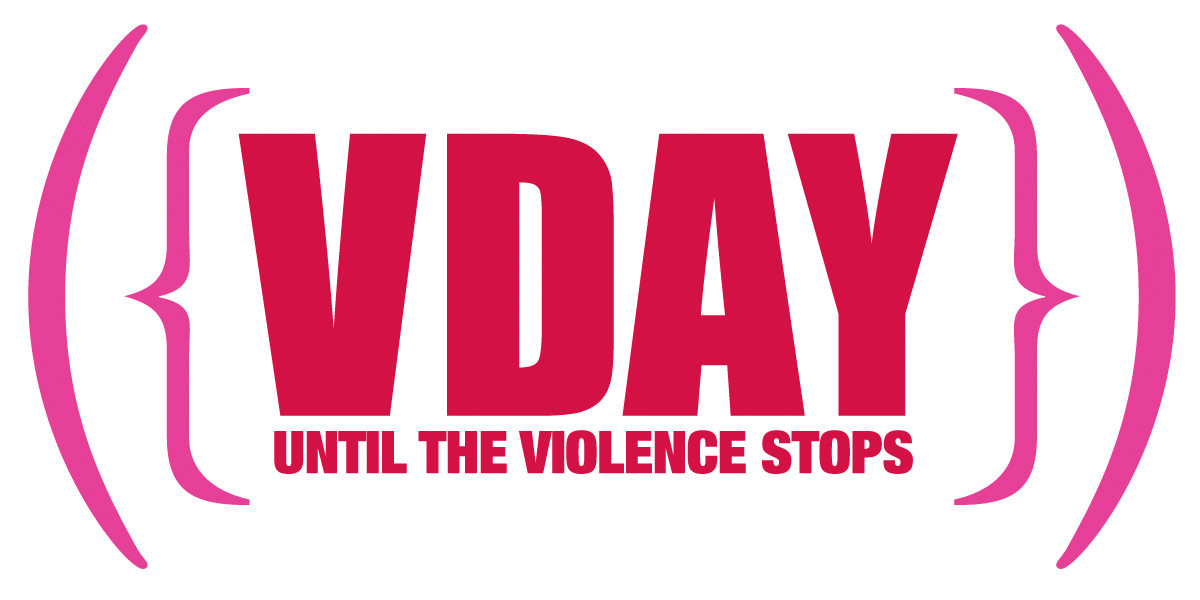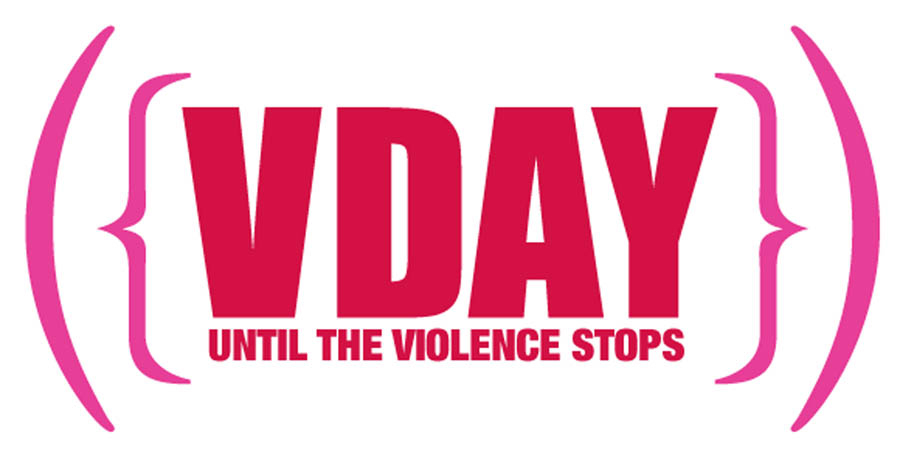
2017 Spotlight: Violence Against Women In the Workplace

For 19 years, the V-Day movement has provided the support and tools which thousands of activists across the globe have used to host V-Day benefit events V‘s (formerly Eve Ensler) play The Vagina Monologues and other artistic works to shatter taboos, change consciousness, and raise awareness and funds for grassroots groups working to end violence against women and girls*.
The V-Day Spotlight Campaign places a focus on a particular group of women who are experiencing high levels of violence with the goal of raising awareness and funds, to put a worldwide media spotlight on this area, and to aide groups on the ground who are addressing it. In late 2001, V-Day launched a campaign called “Afghanistan Is Everywhere” through which V-Day 2002 Organizers from the Worldwide and College Campaigns were asked to provide information at their events about the plight of the women in Afghanistan who had no civil or human rights under the Taliban at that time. They were also encouraged to donate a percentage of their proceeds to Afghan women. The campaign, ‘Afghanistan Is Everywhere,’ focused on Afghan women with the broader intention to unite women worldwide by pointing out the similarities between the experiences of the women of Afghanistan and those of women and girls in other areas of the world and raised over $250,000 for the women of Afghanistan, opening schools and orphanages and providing education and healthcare.
The success of that campaign evolved into what is now the annual V-Day Spotlight. Each year V-Day spotlights a particular group of women who are experiencing violence with the goal of raising awareness and funds to put a worldwide media spotlight on this area and to aide groups on the ground who are addressing it. Ten percent of the funds raised by benefit productions are collected by V-Day and distributed to on-the-ground groups working to end violence addressed in the Spotlight Campaign. (The balance of the proceeds from local benefit productions – 90% – goes to local groups in that community working to end violence against women and girls.) LEARN more about previous Spotlight Campaigns HERE >
The 2017 Spotlight:
In 2017 we are shining the Spotlight on Violence Against Women In the Workplace.
Violence against women at work takes place every day, in every country, across socio-economic levels – from laborers to company executives, to waitresses and teachers, at-home mothers, nurses, farmworkers, factory workers, actors, and domestic workers.** The additional layer of exploitation is that, in many cases, women facing workplace violence are vulnerable and impeded from speaking out or seeking justice for fear of losing their job. All of this is happening in the context of a global economic reality where it is increasingly difficult for women to even earn a livable wage.
This year, we are honoring the sacred and valuable work of women around the world, in all its forms, by demanding safe, violence-free workplaces. The money raised by the 2017 Spotlight Campaign will provide support to groups working to eradicate sexual and gender violence in places of work.
Violence Against Women in the Workplace is
Prevalent –
– In Bangladesh, over 60% of female garment workers have been intimidated or threatened with violence at work.
– Women who waitress in the U.S., who rely on tips to supplement their sub minimum wages, report rates of 90% having experienced sexual harassment on the job, and for many it is happening on a weekly basis.
– In an extensive Human Rights Watch publication, female migrant domestic workers worldwide reported across the board that they were victims of verbal, sexual physical abuse. Women such as the brave Indonesian migrant domestic worker, Erwiana Sulistyaningsih, who narrowly escaped death after her employer forcefully beat her on the job, are leading the movement for global reform of an industry that routinely incudes rape, physical violence, discrimination, humiliation and restricted rights and freedoms.
– In the US, more than 60 percent of 150 female farmworkers interviewed said they had experienced some form of sexual harassment, according to a study conducted by UC Santa Cruz.
– In Zambia, 81 percent of women have faced sexual harassment at work.
– This month in California, female janitors participated in a hunger strike to bring attention to sexual violence on the nightshift.– For trans workers the threat of violence and discrimination is amplified, researchers in the European Union found that over the course of just 12 months one in three trans participants felt discriminated against because of being trans when looking for a job (37 %) or while at work (27 %).
– An average of 80 women a day are sexually assaulted or raped while they’re on the clock.
Gendered –
Workplace violence is not universal, it is targeted at women – and at the highest rates in jobs traditionally seen as “women’s work”; caretakers, nurses, domestic workers, etc. Nurses experience workplace crime at a rate 72 percent higher than medical technicians and at more than twice the rate of other medical fieldworkers. And in male dominated workplaces, women are more likely to face patriarchal mindsets and sexist barriers that protect perpetrators and silence women. This was exemplified in the very recent case of former Fox News Chairman and CEO Roger Ailes, who was exposed for using sexual exploitation and fear tactics for years against multiple female employees. Women laborers in Honduras report forced pregnancy tests administered as a part of the hiring process, and women are routinely not-hired or fired if they become pregnant. Women with disabilities face multiple barriers to safe spaces of work, according to a global report that lists unemployment as a consequence of citing examples, where the abuser may harass or intimidate them in the workplace, harass other employees or prevent them from going to work at all as a mechanism of control, causing them to lose employment.
Deadly –
– Domestic workers in Hong Kong are fighting the illegal and deadly practice of forcing them to clean apartment windows, from the outside, on high-rise apartments. In 2016 alone, at least 5 maids have died in the process.
– In the US alone, 41 people in the sex industry were murdered in 2015; a third of them were transgender.
– Thirty-one percent of women who die at work in the United States are killed as a result of an assault or violent act.
– Throughout history, women in the textile industry have been forced to work under inhumane conditions, and have been killed en masse in preventable fires, from Triangle Shirtwaist to Tarzeen, and building collapses like the tragedy at Rana Plaza.
And it is Global –
Violence Against Women in the Workplace can be found in every country, in every community. We encourage you to add to this global list of with local and regional statistics and incidents of violence against women in the workplace. Share what you learn about women in your community with V-Day and we’ll incorporate their voices in the global movement: campaign(at)vday.org
This year, instead of asking performers and audience members to stand in solidarity with women from a specific region or sector, we invite you to platform the voices of women who are experiencing or fighting workplace violence, on your campus, in your town, in your city. If you are a woman in the workplace, stage The Vagina Monologues or MMRP at your place of work whether it’s a hospital, factory, office building or company. Bring your call for justice, safety and equality to these sites of violence through the plays. Call out impunity through a radical artistic production featuring women in your field. If you’re interested in learning more about how to bring a show out of the theatre and to a site-specific piece, contact our team: campaign(at)vday.org
Make them Visible:
We suggest that each production strive to assemble a cast of performers that is made up of least one third of women workers. During the casting process outreach within your community to women – nurses, teachers, at home mothers, bus drivers, union members, trade laborers, farmworkers, restaurant workers – and bring them to the stage.
Platform their Stories:
During the rehearsal process, work with the women that have joined you to create a dialogue about the types of workplace violence they face, and through those conversations, invite them to write testimonials to be featured in your production. In addition to a piece being written by V, these testimonies (we suggest 1-2 minutes each, and a total of three) of real incidents of workplace violence in your community, read on stage by the woman herself (or by an actor if requested) will make up the spotlight section of each V-Day event around the world.
By platforming these original stories and voices – the spirit of the play and the campaign will come to life, unique to your community, but in solidarity with the thousands of other productions happening simultaneously worldwide, showing the world that we stand together to end violence here and everywhere!
As you are producing your V-Day events, be sure to incorporate and collaborate with other local One Billion Rising & V-Day events and activist in your area. This year we are RISING in Solidarity Against the Exploitation of Women. You can add a RISING to the end of your production through Dance, Film, or other artistic expressions of solidarity. Or create an additional event following your final performance that you promote, encouraging audience members to RISE.
LEARN more about the 2017 OBR campaign >
*Women and girls is an inclusive term reflecting all those who were assigned and/or identify as female.
**This list is only a beginning; we recognize that women occupy many roles that are associated with work and often times even multiple positions. Every production is free to define and identify the working women in their community.



